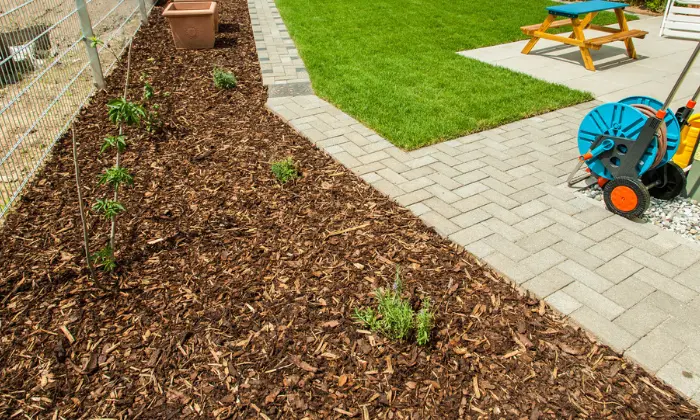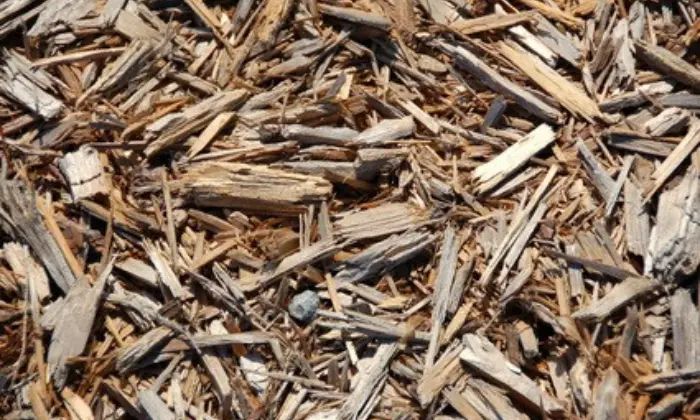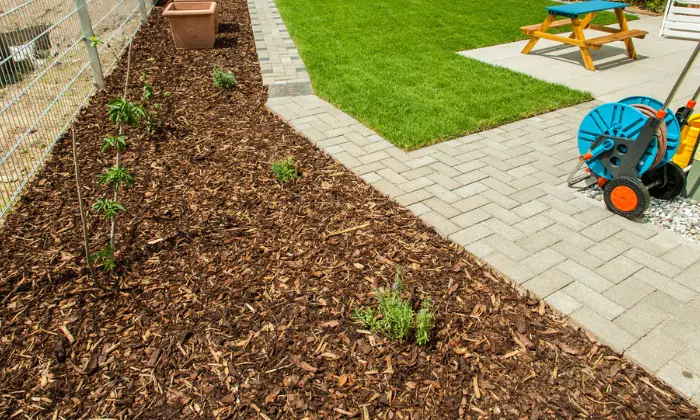Cypress mulch has long been a popular choice for gardeners due to its attractive appearance and natural properties. However, its production raises environmental concerns, prompting gardeners to explore alternative options. In this article, we’ll delve into why cypress mulch is considered environmentally harmful, compare it with cedar mulch, and discuss its suitability for vegetable gardens. Join us on a journey to make informed choices for a greener and more sustainable garden, brought to you by Robert’s Complete Care.

Why Cypress Mulch is Bad & Harmful
Why Cypress mulch has garnered criticism for its environmental impact and potential harm to gardens. The production of Cypress Mulch often involves the clear-cutting of cypress trees, leading to deforestation and the depletion of vital wetland ecosystems. These ecosystems play a crucial role in supporting biodiversity and maintaining ecological balance. Additionally, cypress trees are slow-growing, and their removal from mulch can contribute to the decline of these already vulnerable species. Furthermore, the acidity of Cypress Mulch may negatively affect soil pH, making it unsuitable for certain plants that thrive in neutral or alkaline conditions.
The Downside of Cypress Mulch
Cypress trees, primarily found in wetland areas, play a crucial role in local ecosystems. Harvesting these trees for mulch disrupts these environments and can lead to habitat loss for various species. Additionally, the slow growth of cypress trees means that their recovery is a lengthy process. We’ll explore the environmental impact of cypress mulch production and its implications for biodiversity.

Cypress Mulch vs Cedar Mulch
Comparing cypress mulch with cedar mulch provides insight into choices for environmentally conscious gardeners. Both mulches have unique characteristics, and we’ll evaluate factors such as durability, pest resistance, and sustainability. Discover the benefits and drawbacks of each option to help you make an informed decision for your garden.
Environmental Impact
Cypress trees, native to wetland areas, play a crucial role in maintaining ecological balance. Harvesting these trees for mulch disrupts delicate ecosystems and poses a threat to various species of flora and fauna. In contrast, cedar mulch is often sourced from sustainably managed forests, minimizing the environmental impact.
Decomposition Rates
Why Cypress mulch is Bad, known for its slow decomposition, can contribute to the depletion of organic matter in the soil over time. This can negatively impact soil health, hindering the growth of beneficial microorganisms. Cedar mulch, on the other hand, decomposes more gradually, releasing nutrients into the soil and promoting a healthier garden environment.
Resistance to Pests and Decay
Both cypress and cedar mulch exhibit natural resistance to pests and decay, making them desirable choices for gardeners. However, the sustainability of cedar sourcing makes it a more environmentally friendly option compared to cypress.

Is Cypress Mulch Suitable for Vegetable Gardens?
Gardeners often wonder whether Why cypress mulch is bad and whether it is a suitable choice for vegetable gardens. While it does offer some benefits, such as weed suppression and moisture retention, the environmental drawbacks cannot be ignored.
Nutrient Depletion
Cypress mulch’s slow decomposition rate can lead to a reduction in available nutrients for vegetables. In a vegetable garden where nutrient-rich soil is crucial, the use of cypress mulch may not be the most sustainable choice.
Alternatives for Vegetable Gardens
Consider using compost or organic matter derived from kitchen scraps and yard waste as a more sustainable mulching option for vegetable gardens. These alternatives not only enrich the soil but also reduce the environmental impact associated with cypress mulch.
Cypress Mulch in Vegetable Gardens
Many gardeners wonder whether cypress mulch is bad and it is suitable for vegetable gardens. We’ll discuss the impact of cypress mulch on soil health, water retention, and overall plant growth. Uncover the pros and cons of using cypress mulch in your vegetable garden and explore alternative mulching options that promote a thriving and eco-friendly growing environment.
The Pros of Cypress Mulch
Cypress mulch, derived from the wood of cypress trees, is a popular choice for landscaping and gardening. Here are some potential pros of using cypress mulch:
Weed Suppression
Cypress mulch forms a dense layer that helps suppress weed growth. This can be particularly beneficial in vegetable gardens where unwanted plants can compete for nutrients and sunlight.
Moisture Retention
The natural properties of cypress mulch enable it to retain moisture in the soil. This can be advantageous in preventing water evaporation and maintaining a consistent level of hydration for vegetable plants.
Pest Resistance
Cypress mulch is known for its natural resistance to pests and insects. In a vegetable garden, this can contribute to protecting delicate plants from potential harm.
Conclusion
As conscientious gardeners, it’s essential to consider the environmental impact of our choices. While cypress mulch may offer aesthetic benefits, its drawbacks highlight the importance of exploring sustainable alternatives. Whether you’re deciding between cypress and cedar mulch or contemplating its use in vegetable gardens, Robert’s Complete Care encourages you to make choices that align with a greener and healthier future for both your garden and the planet. For more Contact Us
FAQS
Is Cypress Mulch Suitable For All Types Of Gardens?
While cypress mulch is commonly used in various gardens, its environmental impact should be considered. It may not be the most sustainable option for eco-conscious gardeners, especially in sensitive ecosystems.
What Are The Environmental Concerns Associated With Cypress Mulch?
The primary environmental concern is the impact on cypress tree ecosystems, particularly in wetland areas. Harvesting cypress for mulch can disrupt these ecosystems and affect the diverse plant and animal species that rely on them.
Are There Alternatives To Cypress Mulch That Are More Environmentally Friendly?
Yes, there are several eco-friendly alternatives, including cedar mulch sourced from sustainably managed forests, organic compost, grass clippings, and straw. These options provide similar benefits without the same environmental drawbacks.
Does Cypress Mulch Negatively Impact Soil Health In The Long Run?
Cypress mulch’s slow decomposition rate can lead to a reduction in available nutrients over time. In the long run, this may affect soil health, especially in vegetable gardens where nutrient-rich soil is crucial.
Can I Use Cypress Mulch In Vegetable Gardens?
While cypress mulch can offer benefits like weed suppression and moisture retention, its environmental impact and slow decomposition make it a less sustainable choice for vegetable gardens. Consider alternatives like cedar mulch or organic compost.


